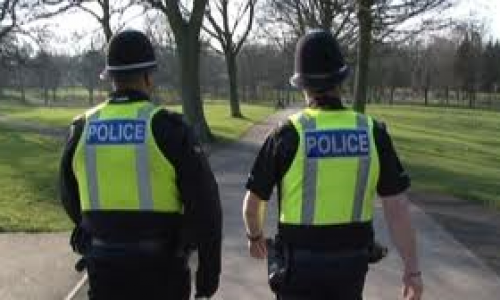
West Midlands force sacks 21 police officers after professional standards inquiries
Twenty-one police officers from the West Midlands force have been dismissed in the past 18 months following internal disciplinary investigations into their conduct, it has been revealed.
The officers left following inquiries by an anti-corruption unit and professional standards department, Police and Crime Commissioner Bob Jones confirmed.
Mr Jones took the unusual step of disclosing the dismissals in a statement condemning Government moves to strengthen the Independent Police Complaints Commission watchdog.
Plans by Policing Minister Damien Green to give the IPCC more powers and a larger budget would be paid for by top-slicing cash from police force budgets across the country, including £3 million from the West Midlands, Mr Jones claimed.
The £3 million is more than the £2.7 million cost of running the West Midlands’ professional standards department and anti-corruption unit, which investigates all but the most serious allegations of misconduct by officers, Mr Jones said.
The force’s ability to respond to “lower level” complaints would be put at risk and the Government was intent on “throwing good money after bad” by increasing the IPCC budget, the commissioner warned.
Mr Jones is backing Labour Party policy that the IPCC must be disbanded and replaced by a new body following a row over the organisation’s role in overseeing an investigation into the Andrew Mitchell ‘Plebgate’ affair.
An inquiry by senior officers from the West Mercia, West Midlands and Warwickshire forces found there was no case for disciplinary action against three members of the Police Federation who met Mr Mitchell and briefed the media that the MP refused to give details of what he said to officers guarding the gates to Downing Street.
It later transpired, from a recording made by Mr Mitchell of the meeting with the Police Federation representatives at his Sutton Coldfield constituency headquarters, that he did give his version of the conversation and vehemently denied using the word “plebs” to described officers.
The three-force investigation blamed the Police Federation representatives for an “error of judgment”, but concluded that no disciplinary action was needed.
The conclusion was heavily criticised by IPPC deputy chairman Deborah Glass, who supervised the investigation.
It also emerged that Warwickshire and West Mercia Police Professional Standards Officer Chief Inspector Jerry Wreakes-Williams advised that disciplinary action should be taken against the three officers, but his recommendation was rejected by more senior officers.
Mr Jones said: “I one hundred per cent support the principle that the police should not be investigating serious cases involving other police officers. This has been my position for many years and throughout the debates about events in Downing Street involving Andrew Mitchell and other recent cases.
“With regards to the investigation that followed the meeting in Sutton Coldfield, I regret the IPCC’s decision to turn down requests for either an independent or managed investigation, which could have avoided the sorry saga we saw at the Home Affairs Select Committee evidence session. It would therefore be right to seek to provide additional resources to a credible organisation outside the police.
“However, the government’s approach is to take money from existing police services and give it to the IPCC. By doing so, the government will be transferring money from West Midlands Police, an organisation whose anti-corruption unit and professional standards department secured the dismissal of 21 officers in the last eighteen months, to the IPCC, an organisation with a blemished track record and limited credibility.
“This would be throwing good money after bad, and compounding the challenging financial position that we and other forces face.
“The cut to West Midlands Police could amount to £3 million. This would be more than the cost of the entire professional standards department and anti-corruption unit, which is about £2.7 million.
“It would simply not be possible to close the function entirely, as this would mean the cessation of proactive work, and the ability to respond effectively and locally to lower level complaints would be damaged. There is a risk that if cases cannot be dealt with quickly and locally, complainants will be dissatisfied and cases will escalate, further increasing the IPCC workload, as well as overall costs.
“I will be writing to the Home Secretary both to protest at the principle of her approach, but also to ask her to justify the amount of the top slice. She previously asked HM Inspectorate of Constabulary to review what local professional standards and complaints activity could be transferred to the IPCC but has refused to release the report, which should be in the public domain.
“I will ask her to release the report as it is clearly a pivotal document, and is needed to justify the value of the top slice and determine whether it is fair.”
Related articles
Similar Articles
Why the mental health cop ban will serve to ‘discourage the others’
The combination of a press-friendly police commissioner with an enthusiasm for social media and a West
Balancing the scales of Justice – @mentalhealthcop
There has been much uproar about West Midlands Police’s decision to suspend @mentalhealthcop as a
West Midlands Police restore Mental Health Cop Twitter feed after six-day ban
West Midlands Police have reinstated the @MentalHealthCop Twitter account six days after the blog was
Mental Health Cop’s twitter account suspended as police chiefs take fright
West Midlands Police’s claim to be at the forefront of the social media revolution took
Commissioner Jones, water cannons, chocolate tea pots and the half pint of beer budget
What a week it’s been for West Midlands Police and Crime Commissioner Bob Jones. In the
About Author

Bloggers win famous victory as Birmingham city council backs down over restrictions on filming meetings 15









